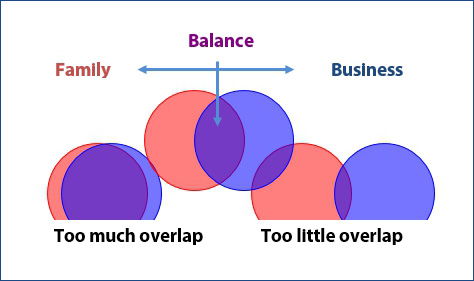Getting reluctant client families to follow your advice
Key Takeaways:- The essence of any family-owned business is the family's values.
- Most family-owned businesses ignore their history, particularly the difficult aspects of interpersonal relationships between siblings, spouses and different generations.
- Skilled advisors recognize the impact of the family culture on the company, its employees and its customers.
In
Part One, I described one of my cases to illustrate why the "magic didn't work." Here I share some solutions I found to make the magic happen when I work with business families.
Promote the importance of stated family valuesAs a professional consultant, I must not only understand, but also promote, the importance of family values, family history and family culture if a project is to be successful. The essence of any family-owned business is the family's values. Those values must be discussed, confirmed, drawn to consensus and followed. That's because those values - visible or hidden - form the building blocks that represent the family's common vision. These values unite them.
Most family-owned businesses ignore their history, particularly the difficult stuff that is part of every family. Instead, we tend to mythologize our histories, as brilliantly shown in the book,
The Way We Never Were. It reminds me of a "geezer" hat I once saw that said, "The older I get, the better I was."
And yet history - true history - is the springboard for talking about the future. I believe it is essential. Soren Kierkegaard said, "Life can only be understood backwards, but it must be lived forwards." It must be lived with intention as well as honesty.
The culture of the family drives the culture of its family-owned business and shows in the family's attitudes toward the company, employees and customers. The professional must help the family understand its culture and the culture's dynamic nature in the family and impact on the business. The family influences the business, and the business influences the family.

These two systems overlap as both contribute to the success and failure of the family-owned business. It is a matter of balance that affects the outcome. When there is too much overlap - it's all business all the time even during family social gatherings - the business becomes disrupted with family politics and issues.
Use structure and formality to create successful, balanced family-owned business dynamics. When I say that, my clients sometimes say, "Tom, we don't need all that structure and formality because we love each other." My response is, "It's because you love each other that you need structure and formality."
Connect with the client's storyUnderstanding each individual client's story is also critical to producing a professional, might I say magical, outcome. Clients' stories are often extremely powerful and fraught with ups and downs. As you listen to them, don't be bashful about letting clients know what their stories evoke in you. You enhance the connection and build the relationship not only by responding, but also, when appropriate, by sharing some of your own story. This also builds trust so that they will be more open to your ideas and suggestions. They see you as an ally, interested in their welfare.
Be clear with the family about your purpose and goalsHave the family ask themselves:
- What do I hope to gain by working with a professional?
- What are my expectations, and what will success look like?
- What part am I willing to play to help create success in both the business and in our family?
- What do I want the family business consultant to do?
You can alert a family to these questions so that they can select the right professional.
Chemistry is another critical factor when selecting a professional to consult with a family business. Is chemistry magic? If not magic, the selection process is still an emotional, gut-level response to candidates whom a family is interviewing for a consulting project.
Another factor a family should consider is how well the professional collaborates. Will the professional be able to cooperate, work together and become aligned with the family and with other professionals who are already a part of our team?
Finally, the family and the professional must each consider whether the other can do what each family wants. Do the family's expectations fit with the professional's skill set? If this is unclear or difficult to know, have the family ask for references to augment their understanding of a professional's capabilities.
ConclusionConsultants are naturally eager to get a new client and develop new business. But if the magic is going to work, everyone involved must make an honest and candid assessment of skills, capabilities and goals. Or, to paraphrase a famous court case, "If it does not fit, you must not commit."
Read Part One of this series:
Sometimes the Magic Doesn't Work